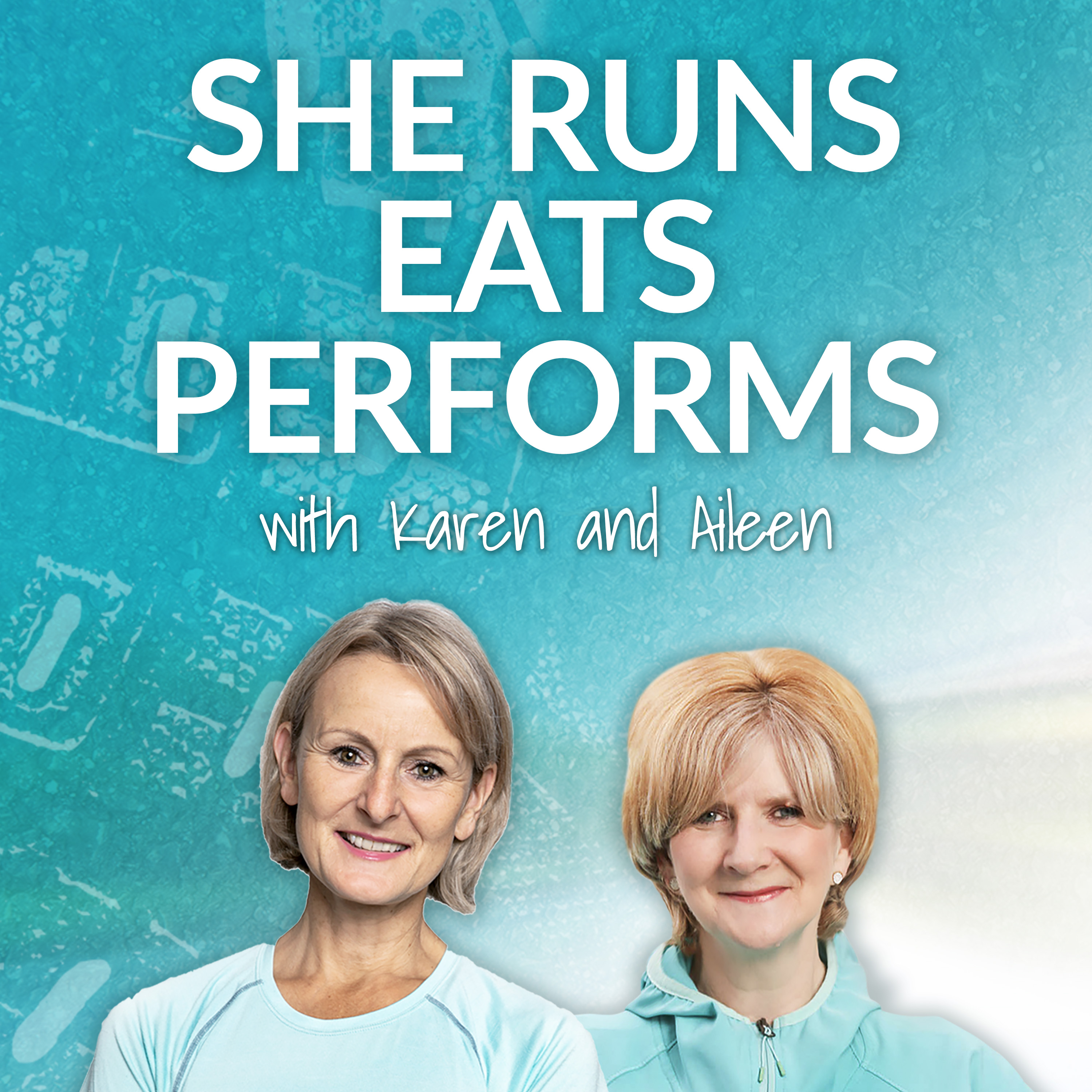HWHR Is Menobrain affecting your running?
Menobrain symptoms can disrupt your run training and take away the joy of being active. The good news is Nutrition and lifestyle can help to minimise Menobrain symptoms. Join us today and we’ll share some nutritional strategies to support you.
Negative peri menopausal or menopausal symptoms have the potential to disrupt your run training and your energy, recovery and motivation.
When we say menobrain we are talking about a collection of medically recognised cognitive symptoms.
These symptoms are commonly experienced during the menopause transition … and can severely affect your quality of life. Mind and mood symptoms are commonly experienced by women going through the menopause transition.
A BIG thank you to our Show Sponsor AMAZING JANE ACTIVE WEAR. Please use discount code RHH10 for 10% off ALL purchases at www.amazingjane.com
SHOW NOTES
(03:15)
Definition of Menopause brainfog.
Women may say:
- They are losing their mind
- They can’t remember or recall things – like names, words, numbers or work information
- They lose their chain of thought
- They feel forgetful, they forget appointments or events or why they’ve gone into a room!
- They talk about fogginess, lack of concentration or focus
- Women make jokes … oh it’s just my menobrain!
Often women who have always felt they have a balanced mind/mood suddenly feel “different”, and during peri menopause start to experience low mood, which may feel as severe as depression and one aspect of this is brain fogginess/forgetfulness and lack of focus and concentration.
(04:40)
The connection between sex hormonal fluctuations and neurotransmitters
Oestrogen has an important role in brain function. It’s a growth promoting hormone and can promote the growth of nerve cells in the brain and can stimulate neurotransmitter pathways. Progesterone is also involved in serotonin and GABA pathways.
Key brain neurotransmitters are serotonin (the ‘feel-good’ neurotransmitter), GABA (the ‘calming’ neurotransmitter) and dopamine (the ‘pleasure’ neurotransmitter), all of which have vital roles to play in supporting balanced mood.
(08:20)
(08:57)
Aileen’s personal experience of menobrain symptoms and how she approached investigating underlying imbalances and corrected nutritional deficiencies.
(15:30)
Three Key Nutrients to support cognition and help alleviate symptoms.
Magnesium Glycinate
Magnesium can support calming of the nervous system and supporting the GABA system which has a calming role. Low level anxiety can accompany foggy brain symptoms just because we are worrying about why it’s happening. Magnesium glycinate includes the amino acid glycine which readily crosses the blood brain barrier and has a calming effect on the brain. Some studies have shown improvements in sleep following glycine supplementation - this is helpful as sleep may often be impacted during the menopausal transition and taking steps to improve sleep has the potential to positively influence mood and anxiety. Magnesium tends to be depleted when we are stressed so topping up to optimal levels is important.
Vitamin B6 (in the active supplement form of pyridoxal-5-phosphate)
All of the B vitamins are important to support energy and the nervous system however vitamin B6 has an important role to play in supporting production of both GABA and serotonin. Ideally take Vitamin B6 supplements in the active supplement form of pyridoxal-5-phosphate – check labels before you buy.
Folate
Folate is the natural form of B9 which you get from food/supplements and the digestive system converts it into active B9 (5- MTFH). We’d suggest if you are supplementing you buy it in the 5-MTHF format for maximum bio availability. Many studies have found an association between low serum folate and the incidence of depression.
(20:12)
What can lead to nutrient deficiencies – it’s not your fault!
(23:43)
Book a FREE healthy Woman Healthy Runner Discovery Call
(25:57)
Taking a multi-factorial approach to hormonal balance during the menopause transition.
(28:37)
Some modifiable lifestyle factors supportive of cognitive health and wider health benefits include:
· Healthy body composition
· Exercising for 150 minutes per week at a moderate-intensity aerobic activity – so easy running would be ideal
· Avoiding excessive alcohol intake
· Not smoking
· Having a healthy BP of 120/80
· Healthy Everyday Food Plan
A key message is that “heart health = brain health”. Look after your cardiovascular health and it’ll help lower the dementia risk.
(31:41)
One Key Action Point
If you are experiencing cognition symptoms which are disrupting your quality of life, don’t put up with those symptoms, consult with your medical practitioner or nutritional therapist, and if possible, get some basic tests done to identify nutritional deficiencies and then take supplement advice to correct them.
If you’d like professional nutritional support, please book a free work with us call and we can suggest the best way to work with us.
Download our FREE E book TOP Running Snacks and Nutrient Timing to Fuel Peak Performance
Related Topics:
Managing Mind and Mood Symptoms
Disclaimer:
The suggestions we make during this episode are for guidance and advice only, and are not a substitute for medical advice or treatment. If you have any concerns regarding your health, please contact your healthcare professional for advice as soon as possible.
A BIG thank you to our Show Sponsor AMAZING JANE ACTIVE WEAR. Please use discount code RHH10 for 10% off ALL purchases at www.amazingjane.com
Also, when you're ready, here are FOUR ways that we can help you:
1) Join Easy Nutrition For Healthy Runners HUB. Please join our FREE private facebook group for education, tips, inspiration with like- minded female runners.
2) Get our Easy Nutrition For Healthy Runners Online Programme. As a THANK YOU, please use COUPON CODE POD to get 33% discount off the full price which brings the price to £199.
3)Find out if you are the right fit for our Healthy Woman Healthy Runner Programme. Please book a free Discovery Call.
4) If you love our FREE stuff but need more help and would like to find out which of our services would be best for you. We’d love to have a short informal (no obligation) chat to see how we can help you. Book a free call here.
We love to hear from our listeners - what are your nutrition and running goals, challenges and successes, please drop us a line at hello@runnershealthhub.com
Best Wishes and Happy Running!
Karen and Aileen

